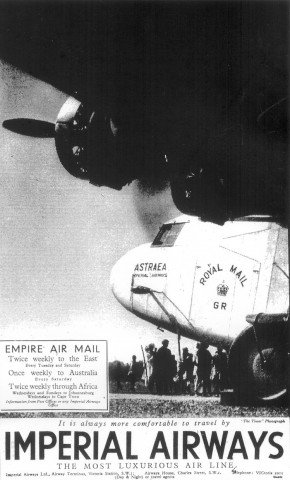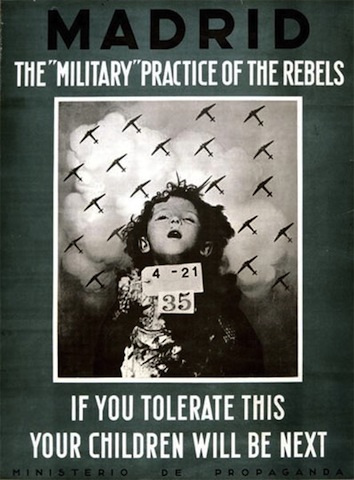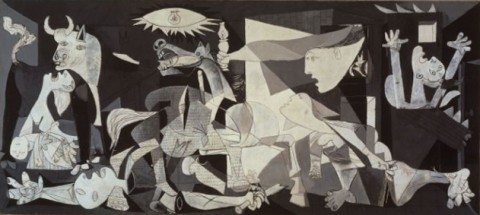Imperial Airways: now with extra airmail
An advertisement for Imperial Airways from the Daily Telegraph, 30 January 1935, emphasising its role in delivering airmail to the Empire: twice weekly to ‘the East’ (presumably India, Singapore, Hong Kong), once a week to Australia (a service which had only just begun the previous month), and twice weekly to Cape Town. A lot of […]




